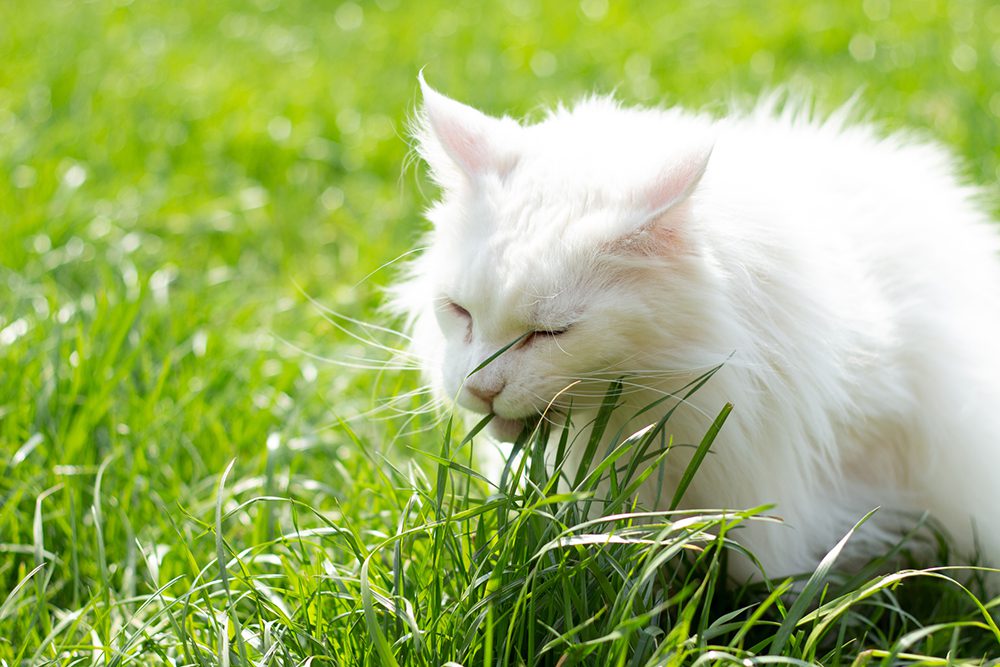Your cat might be a part of your family, but there are certain things about its behavior that might still remain a mystery to you. One such phenomenon is hairballs. If you’ve ever wondered, “Why do cats get hairballs, and what can I do about it?”, you’ve come to the right place. Here at Northwoods Veterinary Clinic, located in the heart of North Charleston, SC, we believe in educating our pet owners about their furry friends’ health.

Understanding Cat Hairballs: What Are They?
Cats are meticulous groomers. As they clean themselves with their rough tongues, loose hair is often swallowed, most of which passes through the digestive system without issues. However, when the hair accumulates in the stomach, it forms a hairball that a cat often regurgitates.
Why Do Cats Get Hairballs?
The formation of hairballs, or trichobezoars, is primarily due to a cat’s unique grooming process. Cats have backward-facing hooks on their tongues that catch loose hair, which is then swallowed. In most cases, this hair is passed naturally through the cat’s digestive system. But when hair accumulates in the stomach, it can form a hairball. Long-haired breeds like Maine Coons and Persians are more prone to hairballs due to their thick fur.
Symptoms of Hairballs in Cats
Usually, cats expel hairballs without difficulty, leaving behind a small, tubular mass. However, complications arise when a hairball can’t be expelled. Watch out for signs like repeated unsuccessful retching, lethargy, loss of appetite, and constipation. If you notice any of these symptoms, don’t hesitate to contact us at Northwoods Veterinary Clinic. You can call us at (843) 553-0441 or schedule an appointment online at https://northwoodsvet.com/request-an-appointment/.
How to Prevent Hairballs in Cats
The Role of Cat’s Unique Grooming
While grooming is a natural behavior, you can help minimize hair ingestion and subsequent hairball formation by brushing your cat regularly. This simple routine removes loose fur that could otherwise be swallowed. Investing in a good-quality grooming tool especially designed for cats is advisable.
Hairball Remedies and Diet Adjustments
There are several hairball remedies on the market, such as lubricants that help hair pass through the digestive system. Additionally, certain diets are specially formulated to promote healthy skin and coat, reducing shedding and thus the amount of hair swallowed.
Brushing and Regular Vet Check-ups
Regular veterinary check-ups are crucial. At Northwoods Veterinary Clinic, we offer professional grooming services that can help control hairball formation. With regular visits, our team can also monitor your cat’s health and offer personalized advice to manage hairballs effectively.
When to Consult Northwoods Veterinary Clinic
While occasional hairballs are nothing to be alarmed about, frequent hairballs can indicate an underlying health problem. It’s important to remember that each cat is unique, and what works for one might not work for another. That’s why it’s essential to consult with a trusted vet if you notice an increase in hairball frequency or other troubling symptoms.
Northwoods Veterinary Clinic in North Charleston, SC is committed to the health and well-being of your feline friend. If you’re concerned about your cat’s hairballs or just due for a routine check-up, don’t hesitate to reach out to us.
Visit our website at https://northwoodsvet.com/ for more information or to make an appointment.
Remember, prevention is better than cure. Let’s work together to ensure your feline friend remains happy, healthy, and hairball-free!
